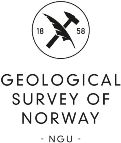

|
Norsk versjon | ||||
| THE INDUSTRIAL MINERAL DATABASE | |||||
| Deposit Area 1740 - 302 | |||||
| (Last updated 23.nov.2006) | |||||
Name of Deposit Area : Størje |
| (Object Id : 1740,302,00,00) |
| Location |
| County : | Nord-Trøndelag (17) | Municipality : | Namsskogan (1740) |
| Map 1:50000: | Røyrvik (1924-4) | Map 1:250000: | Grong |
| Marking point: | Longitude: | 13.3592570 | Latitude: | 64.9644610 |
| EU89-UTM Zone 33 | (Coordinates NOT confirmed) |
| X-coord: | 422532 m. | Y-coord: | 7205498 m. |
|
|
| Commodity |
| Main Type: | Olivine | Sub Type: | Ultramafic (unspec.) |
| Importance |
| Public: | Not Assessed (reg. 18.02.2015) |
| Economical: | Not classified/evaluated |
Mineralization |
| Era: | Period: | |||
| Dating: | Method: | |||
| Genesis: | Form: | |||
| Main texture: | Min. distribution: |
| Main grain size: |
| Strike/Dip: | Direction: | |||
| Plunge: |
| Stratigraphic classification of host rock |
| Era: | Period: |
| Province: | ||
| Geotec.unit: | ||
| Tectonic complex: | ||
| Igneous complex: |
| Group: | Formation: |
Bibliography: |
| From NGU's Reference Archive: |
| Lutro, O.; Kollung, S. , 1983 |
| Røyrvik. Berggrunnskart; Røyrvik; 19244; 1:50 000; sort/hvitt; |
| ;Norges geologiske undersøkelse;KART |
| Lutro, Ole , 1979 |
| The geology of the Gjersvik area, Nord-Trøndelag, central Norway. |
| ;Norges geologiske undersøkelse;TIDSSKRIFTARTIKKEL;NGU; No.354;53-100 + pages |
| Abstract: | |
| The Gjersvik area consist of low-grade metamorphic rocks overlain in the west by the higher grade Helgeland Complex. The low-grade sequence is divided into three groups: the Gjersvik, the Limingen and the Røyrvik Groups. The Gjersvik and the Limingen Groups constitute a redefined Gjersvik Nappe, thrusted above the Røyrvik Group. The stratigraphy within the Gjersvik Nappe is inverted. The greenstones and felsic rocks in the Gjersvik Group are of tholeiitic affinity and are thought to represent part of a Lower or Middle Ordovician island arc complex which was affected by sea floor weathering after deposition. Parorogenic movements, possibly in Middle Ordovician time, led to erosion of the Gjersvik Group and the formation of a polymict conglomerate marking the basal unit of the Limingen Group. This group consists mainly of calcareous metasediments of shallow water origin and is probably of Middle to Upper Ordovician age. The Røyrvik Group consists of phyllites, often bituminous, associated with quartzites and some greenschists. The group has been an uncertain age and stratigraphical position. The Helgeland Nappe Complex in the map area is composed of metasedimentary gneisses and schists intruded by a tonalite. |
| The fact sheet was created on 19.05.2024 |
| Questions or comments regarding the fact sheet can be emailed to: ressursdatabaser@ngu.no |
| Copyright © 2024 Geological Survey of Norway |